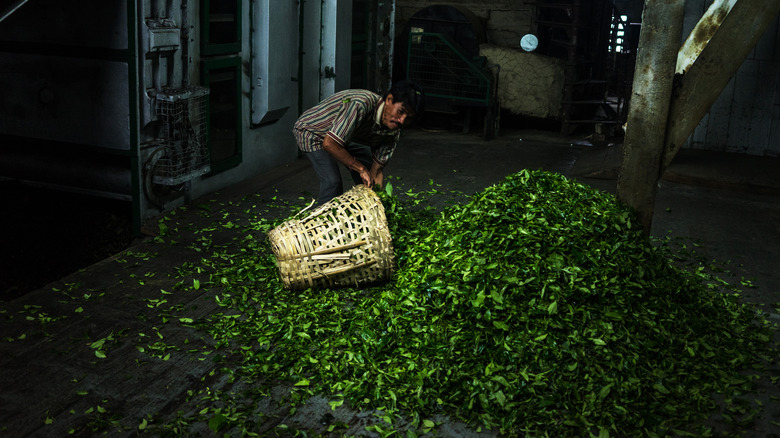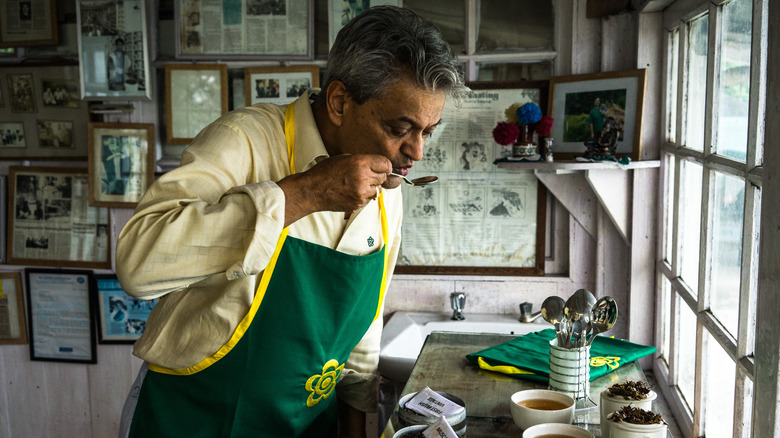This Expensive Tea Is Harvested Only When There's A Full Moon
Agricultural folklore is steeped in traditions linked to the phases of the moon. As The Old Farmers Almanac puts it: "The age-old practice of performing farm chores by the moon stems from the simple belief that the moon governs moisture." And why not; the moon certainly governs ocean tides. In "The Natural History," Roman naturalist Pliny the Elder wrote that when the moon approaches the earth it "fills all bodies" and then empties them when it pulls back. "Leaves and vegetables," he wrote, "feel her influence, her power penetrating all things."
Similar belief is on display each year at a farm in India that has produced the nation's most expensive tea. There, at the Makaibari Tea Estate in the Darjeeling tea producing district, the BBC reports that workers gather on clear nights with full moons to pick a type of oolong tea (Camellia sinensis) that once sold for $1,850 per kilogram.
It's called Silver Tips Imperial, and it has earned a spot on Conde Nast Traveler's list of the world's most expensive teas. If you buy it from the estate, it'll set you back $35 for 50 grams of what they deem "the jewel in the crown of our tea treasures."
While other estates in the area harvest the tea, Makaibari is the only estate to only do it during full moon nights, the BBC said. Whether it's the harvest method or pure genetics, what results is a tea that Craft House says has a "delicate floral bouquet and notes of almond with gentle sweetness."
How is Silver Tips Imperial tea harvested?
Makaibari, which the BBC said never belonged to the colonial British, became, according to Mint Lounge, the worlds' first certified 100% organic tea estate in 1988 and adopted the Fairtrade policy in 1993. In 2015, according to Forbes India, Prime Minister Narendra Modi gave the Queen of England some Silver Tips Imperial from the estate.
The farming techniques the estate uses involve "some science, some myth," Rudra Chatterjee, the current owner of the Makaibari estate, told Mint Lounge. Adhering to a harvesting strategy where leaves and buds can only be picked during a full-moon night means plucking can only happen four to five times per year from March to October, the BBC notes. Those at the Makaibari farm believe that exposing the leaves and buds to sunlight after they are picked changes their consistency and aroma.
The resulting scarcity contributes to the tea's high price, but it isn't only commercial reasons why the estate limits harvests, which as the BBC says are "part spiritual, part ceremonial." The news outlet reports that workers dress in West Bengal attire, men play drums, and women dance and chant prayers. Torches fueled with tallow deter leopards and help the harvesters see.
The picking starts after 8 p.m. and is finished by midnight. Specially trained pickers pluck leaves and buds and put them in baskets at their backs. The whole lot — likely consisting of around 200 kilograms raw — is processed into about 50 kilograms of Silver Tips Imperial tea before sunrise.

